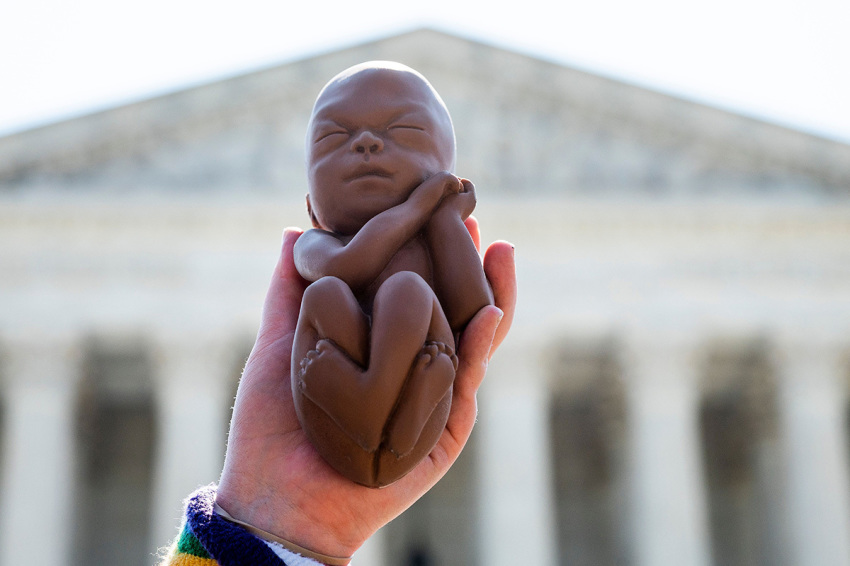#WeCount claim that abortions increased despite restrictions is ‘misleading,’ expert says

A pro-life scholar has expressed doubts about a widely reported study from an abortion advocacy group claiming that the number of abortions has increased since Roe v. Wade was overturned.
The Society of Family Planning, an organization that believes in "just and equitable abortion and contraception," released its eighth #WeCount report this month as part of a project that analyzes abortion numbers in the United States. According to the report, within the first six months of 2024, the monthly average national abortion volume was nearly 98,000 abortions.
Data in the assessment includes the number of exterminations abortionists claimed they performed monthly from April 2022 through June 2024, with the Society of Family Planning continuing to request and update data throughout the study period.
Regarding at-home DIY abortions (also sometimes referred to as telehealth abortions), the group found that these abortions rose 4% from April 2022, accounting for 20% of abortions in the second quarter of this year. From April to June 2024, the monthly average of telehealth abortions provided under shield laws was over 9,700, according to the report.
Michael New, senior associate scholar at the pro-life research organization Charlotte Lozier Institute, however, expressed skepticism about the group’s data, citing additional evidence that suggests abortion restrictions are saving lives.
If the #WeCount survey is to be believed, according to New, then that means abortions increased by approximately 12% so far in 2024. The study also asserts that the number of abortions has remained largely the same even in states that have outlawed most abortions due to women obtaining one through telehealth appointments.
“This is just the latest attempt by pro-abortion researchers to downplay the impact of pro-life laws,” New said in a statement provided to The Christian Post. “However, birth data from Texas and other states provides very strong evidence that recently enacted pro-life laws are saving thousands of lives.”
“Pro-lifers should ignore this study and use the opportunity presented by [Dobbs v. Jackson, which overturned Roe] to continue to enact strong, protective pro-life laws,” he added.
The Society of Family Planning did not respond to The Christian Post’s request for comment.
In a breakdown of the study published Wednesday by National Review, New noted a slower increase in abortions in states that enacted abortion restrictions. Comparing the first six months of 2023 to the first six months of 2020, the advocacy group’s data shows abortions increased by 4% in nearly 12 states that enacted abortion restrictions.
“However, between 2020 and 2023, the overall number of abortions increased by over 13 percent nationwide,” New wrote. “The fact there has been a much slower growth in the incidence of abortion in states with strong pro-life laws is evidence that these protective laws are having an impact.”
In addition, New highlighted the group’s state-level abortion estimates, which he argued “make little sense.” If one compares the first six months of 2023 to the first six months of 2020, the data show abortions in West Virginia increased by 56%. This would also mean that abortions increased by 37% in Tennessee.
“However, given that both West Virginia and Tennessee effectively banned abortion after the Dobbs decision, such a dramatic increase in abortions seems very unlikely,” New wrote.
#WeCount’s latest report suggests that telehealth abortions have accounted for over 19% of abortions so far in 2024. However, New contended that a woman ordering abortion drugs does not automatically mean she went through with ending her pregnancy.
Case in point: two years ago, the U.S. Food and Drug Administration spoke out against a spike in providers prescribing abortion drugs to non-pregnant women after the Supreme Court overturned Roe. The women wanted to hold onto the drugs in case they decided to have an abortion in the future.
At the time, the FDA warned that a woman could take the drugs weeks or months after the prescription was filled, which means she might not have undergone a screening to determine how far along she is or if the pregnancy is ectopic. According to the health agency, prescribing abortion drugs to non-pregnant women could endanger their health and safety.
“This raises serious questions about the accuracy of #WeCount’s data,” New reiterated.
New also contends that the #WeCount researchers should have analyzed birth data if they wanted to assess the impact of abortion restrictions. According to a November 2023 study published by the Institute of Labor Economics, there was an increase of 32,000 births in the first six months of 2023.
He highlighted three separate studies analyzing Texas birth data, noting that the state’s Heartbeat Act, which took effect in September 2021, “saved over 1,000 lives every month.” He added that Texas had the largest percentage of birth increase compared to other states in 2022, which he contends is further proof of the effectiveness of abortion restrictions.
Samantha Kamman is a reporter for The Christian Post. She can be reached at: samantha.kamman@christianpost.com. Follow her on Twitter: @Samantha_Kamman



























